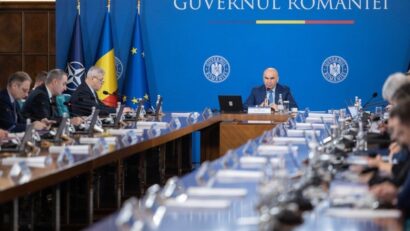Consensus on prices for basic foods
The leaders of the ruling coalition in Bucharest have reached a compromise after a five-hour meeting.

Roxana Vasile, 24.09.2025, 14:00
Tensions in the ruling coalition in Romania are running high, against the backdrop of the extremely unpopular austerity measures that the government has adopted since June to reduce the country’s budget deficit, which are seriously affecting ordinary people. On Tuesday, the country’s president, Nicușor Dan, invited the leaders of PNL, PSD, USR and UDMR “to engage in a dialogue necessary to consolidate the country’s political and economic stability”, the Presidency states. At the end of the talks, the president gave assurances that this coalition will continue in the current formula and that the leaders of the four parties in the coalition have committed to settling their differences of opinion through dialogue and responsibility in the public interest. The economic indicators presented by the Finance Minister show a positive evolution, which allows the continuation of the governing program, without endangering macroeconomic balances, and the data shows an improvement in the budgetary situation and a clear stabilization process – president Nicușor Dan said.
After the talks with the president, coalition representatives convened at the government headquarters, where they addressed the main issues that have strained relations between them recently. More specifically, amid the considerable increase in almost all prices and inflation nearing 10%, they reached an agreement on the extension of the cap on the commercial mark-up for 17 basic foods by six months, a measure in force since August 2023. The coalition’s decision could result in a law being adopted by the government, and starting October 1, the cap would be extended, that is, until March next year. PSD and UDMR supported the maintenance of this mechanism aimed at protecting the purchasing power of people with low and medium incomes. According to PSD, lifting the cap would lead to a 30% decrease in their purchasing power, and if it were not extended, over 1 million Romanians would be at risk of poverty and social exclusion in 2026, increasing social tensions and political instability.
By contrast, although they featured initially on the agenda of the coalition leaders’ round of talks, the measures regarding the reform of local public administration have been postponed until next week. Prime Minister Ilie Bolojan’s intention to cut as many as 13,000 jobs is also facing opposition from PSD and UDMR, both parties claiming such a measure would create major deadlocks at the level of many city halls in the country. As for the budget adjustment, the final details will be discussed on Thursday, political sources say, so the government might operate it next week. (VP)






























